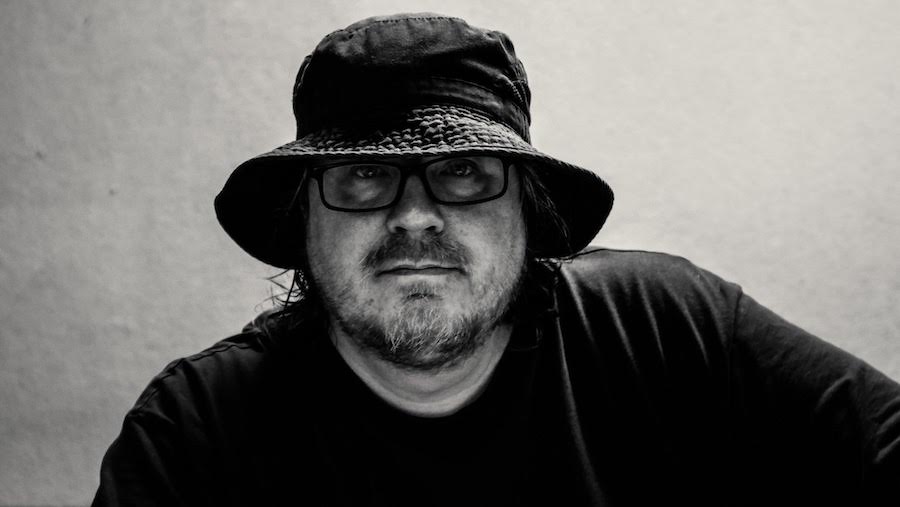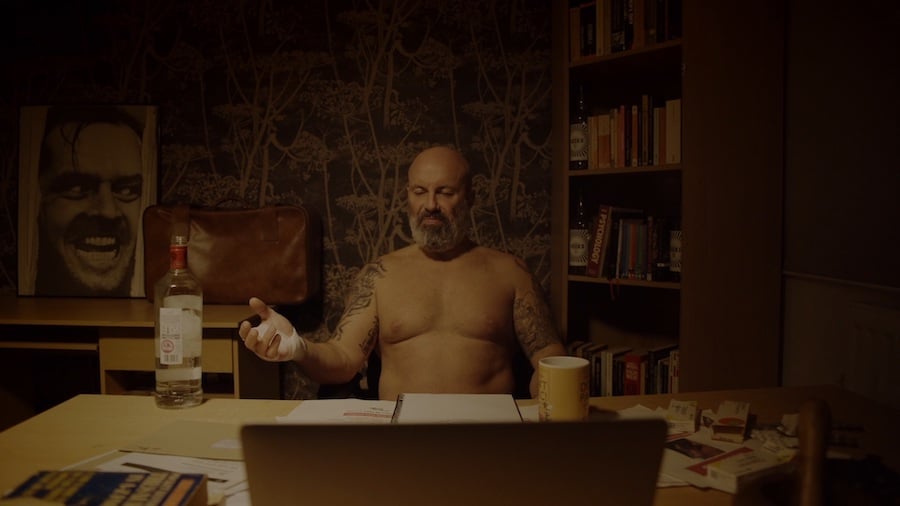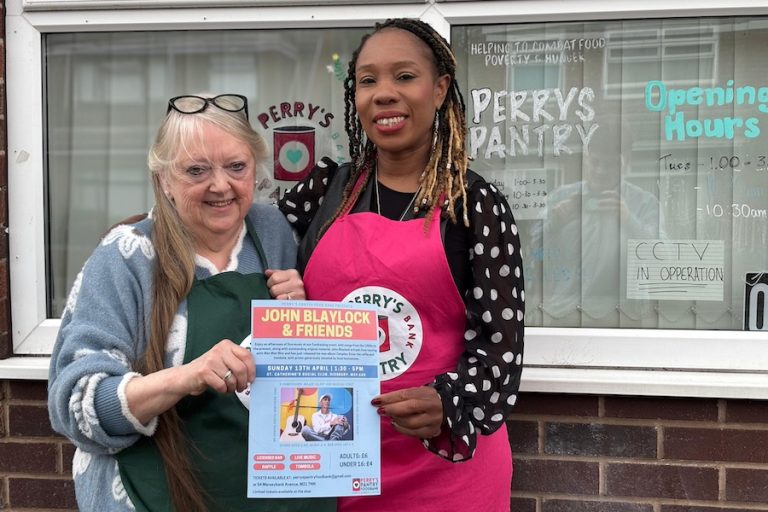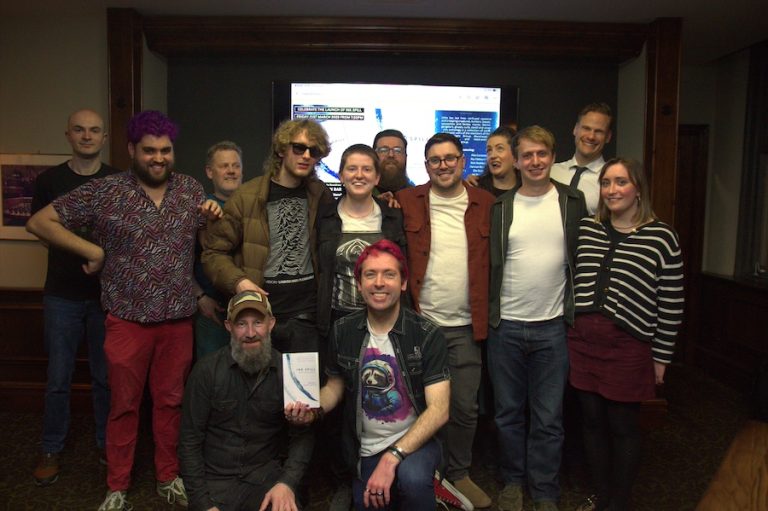“Manchester has all the great hallmarks of a Hollywood film set”
- Written by Thom Bamford
- Last updated 2 years ago
- Cinema, Featured

His film, set in Manchester, explores themes of class and morality, abandonment, loneliness, mental health, and a breakdown in communication between the working and middle classes.
It is loosely based on works such as Hieronymus Bosch’s ‘The Garden of Earthly Delights’, John Bunyan’s ‘A Pilgrim’s Progress’ and Albert Camus’ ‘The Myth of Sisyphus’.
Despite receiving no funding, investment or support from any public or private organisation, the film won over 50 international film festival awards and nominations and has received over 100 positive reviews on IMDb, Letterboxd, and various culture websites.
The film was praised for its anger, insight, originality, production values, performances, and soundtrack.
It has been compared to the works of Ken Loach, Mike Leigh, Alan Clarke, and even Theodor Dreyer.
In an interview, Gregory stated that he aimed to represent the Northern working class on-screen with intelligence, authenticity, and dignity, in direct opposition to the demeaning stereotypes and caricatures often portrayed by the mainstream media based in London.
The film follows Old Jack’s descent into his own private rabbit hole, where he meets himself as a young boy in 1984 and as a university student in 1992.
During preview screenings throughout Greater Manchester, the film has been received by audience members with shock, horror, and stunned silence.
The film tackles themes such as abandonment, loneliness, and mental health, and draws on Gregory’s own life experiences to give the narrative and the characters a heartbeat.

We sat down with the director, Brett Gregory who’s film has been sweeping awards left right and centre since it was created, to talk about his film.
What inspired you to write this film?
I am not sure that ‘inspired’ is the right word. I ‘had’ to write this film because my best friend died suddenly, but nobody visited to help me grieve. I ‘had’ to write this film because my family abandoned me when I needed them the most. I ‘had’ to write this film because, like millions of others, I was made redundant due to the corrupt banking crisis in 2008.
I read in an interview that the following books and art inspired the content of the film: ‘The Garden of Earthly Delights’, ‘A Pilgrim’s Progress’, and ‘The Myth of Sisyphus’. Why did you pick these?
The film is about the eternal struggle which we all like to call ‘living’. As a consequence, it made sense to me to explore and research similar narratives about the human condition that have stood the test of time – Bosch, Bunyan, Camus, for example – and to learn from them, to understand the world and myself better, and to be a more mature writer and director.
How has the film been received by audiences so far?
During preview screenings throughout Greater Manchester, the film has been received by general audience members with shock, horror, and stunned silence. Palpably awkward and uncomfortable, they know that the film hasn’t been produced to make money. Deep down inside, they know the film has been produced to make a difference. Outside of Manchester, film critics from Leicester, Massachusetts, Cairo, etc., are ecstatic that an intense and classy independent feature film has finally been produced in the north of England without any bureaucratic interference from London whatsoever. The popular Jacobin Magazine in New York, for example, described ‘Nobody Loves You and You Don’t Deserve to Exist’ as ‘the best film about working-class Britain in years… A political triumph’, and they are absolutely correct in this assessment.
The film tackles themes such as abandonment, loneliness, and mental health. How did you approach depicting these topics on screen, and what were some of the challenges you faced?
As mentioned above, I drew on my own life experiences when writing the screenplay; I drew on the truth of my own misery, mistakes, and pain to give the narrative and the characters a heartbeat. I also did not care what people thought of me. Following this, the main challenge was convincing others that this story needed to be told, that it mattered, and their skills, talents, and abilities would not be wasted on some run-of-the-mill, straight-to-YouTube rubbish. For instance, securing the 11-year-old actor, Reuben Clarke, from ‘Peaky Blinders’ to deliver a 10-minute unbroken monologue that deals openly and poetically with domestic violence and child abuse was, and still is, a unique achievement.
The film has been described as “thought-provoking” and “powerful”. What do you want audiences to take away from watching the film?
I would like people who watch the film to take a deep breath, concentrate, and reflect upon the details and meaning in their own lives in a similar way to how I took the time to inscribe details and meaning into the film: its story, its characters, and its production. Believe it or not, we all matter, and we’re all interesting. We just need to be kinder to ourselves and to each other.
How did you cast the actors for the film, and what were some of the qualities you were looking for in the performers?
We initially carried out our casting via Twitter whereby casual, semi-professional and/or professional actors throughout the region were invited to record and submit self-tapes in character. It was clearly stated that we had no production budget and, if the feature film failed, performers would still, at the very least, acquire solid material for their showreel. Key qualities included memory, control and depth of emotion, a desire to perform, respect for the material and, more importantly, availability. It wasn’t all plain sailing however: there are some very strange people out there who are, simply, lost.
The film has won many international awards and nominations. Did you expect this level of critical acclaim when you were making the film?
The only expectation I communicated to the cast and crew during the shoot was to produce the best feature film we possibly could with the abilities we had, the equipment we possessed, the locations we had access to and the time we had available. Since these production standards, rightly or wrongly, are still not enough for the general viewing public however, we were thus forced to research and enter film festivals around the world to ‘prove’ that the film was objectively ‘good’. I imagined that we’d win about 5 or so awards, not 60.
As a self-funded film, how did you manage to bring the project to fruition over the six and a half years it took to complete? What obstacles did you face?
Due to the nature and importance of the material I had to remain focused throughout as crew and cast members came and went over the years. Even though there was no real production budget, the film still put me £56,000 in debt via personal loans and overdrafts,
and I’m still paying this debt off. Money is, and always will be, the main obstacle to producing a quality independent feature film in the north of England.
Are you from Manchester? If not, why did you set the film around the city?
I was born down South and raised in the Midlands but my step-father was from Bolton, and so we visited Greater Manchester often during the 1970s and 1980s. By way of coincidence, or perhaps fate, these historical, emotional and psychological ties to the region became cemented when I secured a position teaching Film and Cultural Studies at a college in Manchester in 2003. I’ve lived here in Hulme ever since. In turn, I wrote, directed and produced a music documentary feature called ‘Manchester: Beyond Oasis’ in 2010 and, during an interview with BBC Radio Manchester, I highlighted that the city had all the hallmarks of a great Hollywood film set: high and low class characters, its own distinctive dialect and slang, gothic architecture, modern buildings, and a forward, adventurous way of thinking which, ironically, cannot possibly imagine letting go of the past. Now that, to me, is called ‘drama’.
Finally, what advice would you give to aspiring filmmakers who want to tell stories that challenge the status quo and represent marginalised communities?
Be honest with yourself. Are you telling a story because you need to or because you want to? The audience will find out pretty quickly if you’re lying. More significantly, what are you prepared to sacrifice? When I was teaching the students would ask me, ‘Brett, how can you work full time and still make all these films?’ And I’d reply, ‘It’s easy. Never get married, never have children, never own a home, never own a car and never go on holiday. See? There’s plenty of time.’
Nobody Loves you and you Don’t Deserve To Exist recently collaborated with two of Manchester’s Oldest Charities Lifeshare and EPiC HOPE to raise money and awareness of homelessness in the city.
- This article was last updated 2 years ago.
- It was first published on 3 April 2023 and is subject to be updated from time to time. Please refresh or return to see the latest version.
Did we miss something? Let us know: press@ilovemanchester.com
Want to be the first to receive all the latest news stories, what’s on and events from the heart of Manchester? Sign up here.
Manchester is a successful city, but many people suffer. I Love Manchester helps raise awareness and funds to help improve the lives and prospects of people across Greater Manchester – and we can’t do it without your help. So please support us with what you can so we can continue to spread the love. Thank you in advance!
An email you’ll love. Subscribe to our newsletter to get the latest news stories delivered direct to your inbox.
Got a story worth sharing?
What’s the story? We are all ears when it comes to positive news and inspiring stories. You can send story ideas to press@ilovemanchester.com
While we can’t guarantee to publish everything, we will always consider any enquiry or idea that promotes:
- Independent new openings
- Human interest
- Not-for-profit organisations
- Community Interest Companies (CiCs) and projects
- Charities and charitable initiatives
- Affordability and offers saving people over 20%
For anything else, don’t hesitate to get in touch with us about advertorials (from £350+VAT) and advertising opportunities: advertise@ilovemanchester.com



The eclectic group that’s been helping writers cut their teeth for 50 years

Manchester and Los Angeles prove that opposites really do attract

“His presence will be deeply missed” Children’s hospice bids farewell to their visionary CEO















